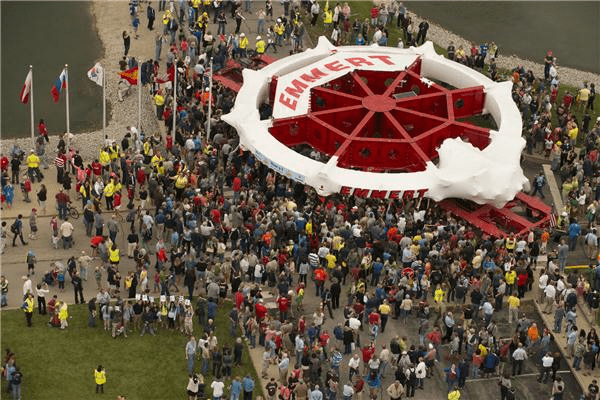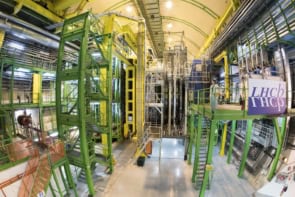
This article was updated on 5 February
Physicists in Japan say they have a solution to a problem that has puzzled particle physicists for nearly two decades – the anomalous magnetic moment of the muon.
Measurements made over several years at the at the g-2 experimentat the US’s Brookhaven National Laboratory suggest that the muon magnetic moment is significantly larger than predicted by the Standard Model of particle physics. After careful analysis of data related to the decay of the muon to an electron, the statistical significance of this discrepancy is at 3.6σ – which means that it is extremely unlikely to be a fluke.
Beyond the Standard Model
One possible explanation is that particles not described by the Standard Model are involved in the muon decay, and their presence affects the measured value of the muon magnetic moment. Finding evidence for such particles would be a colossal achievement, which is why the new Muon g-2 experiment at Fermilab is gathering data this year.
Now, however, Takahiro Morishima of Nagoya University and Toshifumi Futamase of Kyoto Sangyo University have come up with an alternative explanation of the anomaly. In three preprints uploaded to the arXiv server, the duo calculate that effects due the curvature of space-time could result in an increase in the measured value of the magnetic moment. This effect of general relativity is related to the gravitational field of the Earth.
Muons, but not electrons
While the same physics applies to the electron (which does not have a similar magnetic anomaly), Morishima and Futamase say that the effect does not lead to a boost in the measured magnetic moment of the electron.
The three preprints have not yet been peer reviewed but have already caused a stir on some physics blogs. Particle physicist Tommaso Dorigo writes: “The idea that classical gravitational effects affect its value in a way quite consistent with the observed departure is extremely surprising and exhilarating”.
Mathematical physicist Peter Woit writes, “This sort of calculation needs to be checked by other experts in the field, and provides an excellent example of where you want good peer review”. He adds, “If this is right, it’s a fantastic example of our understanding of fundamental physics at work, with the Muon g-2 experiments measuring something they weren’t even looking for, a subtle effect of general relativity”.
Update: The mathematical physicist Matt Visser of Victoria University of Wellington in New Zealand has posted a preprint to arXiv in which he argues that the effect claimed by the Japanese physicists cannot explain the anomalous muon magnetic moment. Visser says that the Japanese physicists have made an error in their implementation of the Einstein equivalence principle of general relativity. His own calculation suggests that the effect is far too small to explain the muon anomaly.



